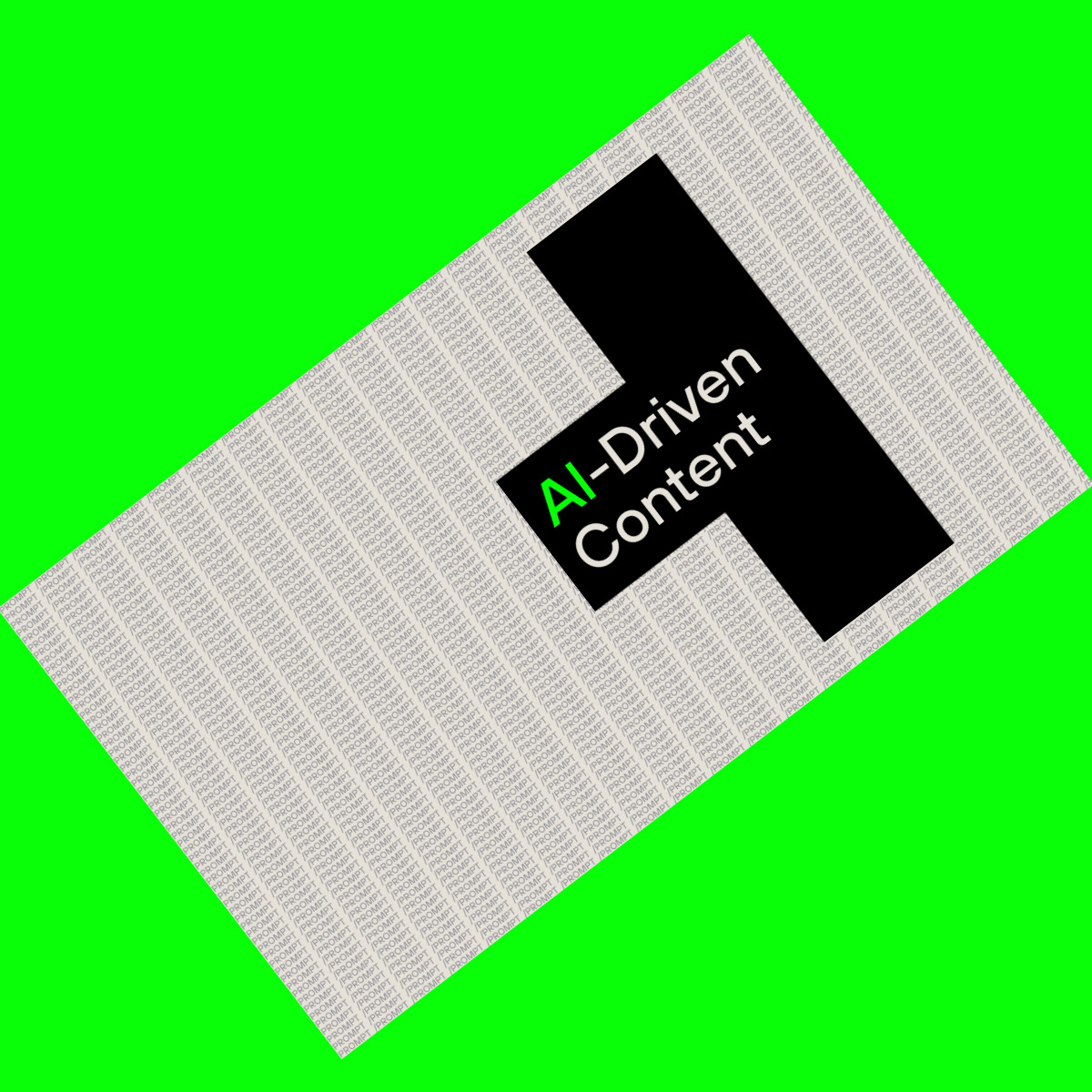Here’s Why AI-Driven Content Is Not Driving the Results You Crave

Here’s Why AI-Driven Content Is Not Driving the Results You Crave
Index
It’s been more than 15 months since ChatGPT was first launched, but as our Senior Content Writer Mike Tuckerman explains, there’s a reason your AI-driven content may not be generating the results you want.
Not in a casual setting or anything like that.
I met him in the mixed zone at the 2008 FIFA Club World Cup in Japan, where I had a media pass and was covering the tournament for a California-based start-up that was barely still in business by the end of the week.
But I was there, pretending to do important work, and when a vastly more experienced journalist gave me a valuable tip, I took full advantage.
“How are your grandparents?” I asked the Portuguese star as he made his way down the line of assembled journos, voice recorders at the ready, all desperate for that one quote that would justify their presence at a widely derided tournament played a long way from home.
“Huh?” replied the Manchester United winger.
“How are your grandparents?” I replied. “They live in Perth, right?”
“Are you Australian?” my new best friend suddenly enquired.
“Yeah – but I live in Japan. I was just wondering how your grandparents are going?
He stopped, grinned from ear to ear, and we chatted for a minute or two about life in Australia and the 5-3 semi-final defeat his Manchester United side had just inflicted upon Japanese champions Gamba Osaka.
A few days later, I was standing in the same mixed zone after Manchester United had just downed Ecuadorian upstarts LDU Quito 1-0 in Yokohama to win the FIFA Club World Cup.
Wayne Rooney scored the only goal and was deservedly named player of the tournament, but it was Ronaldo whose eye I caught after the game.
“You made it,” he said, as he pushed his way through a phalanx of players to acknowledge my otherwise unremarkable presence.
“Good to see you again!”
That’s it. That’s literally the entire story of the two times I interacted with someone who would go on to become globally famous.
But there’s a reason I just wrote it all out, and it’s a simple one. Because ChatGPT can’t.

The internet has a content problem.
More specifically, the internet has a problem with what one recent ABC Science article called “zombie content”.
Which is to say, the public spaces where we congregate and interact online are fast being overrun by content written not for human consumption but rather by artificial intelligence, as a means of trying to game a variety of search engine and social media algorithms.
Almost 15 months after ChatGPT’s sudden emergence, plenty of legitimate businesses – and plenty not-so-legitimate – are using AI to pump out content that has little redeeming value to human audiences.
In the words of the ABC’s James Purtill, the internet is “becoming a place where bots talk to bots, and search engines crawl a lonely expanse of pages written by artificial intelligence”.
Have you spent any time on X – the social media platform formerly known as Twitter – lately?
It’s teeming with bots.
Elon Musk promised to rid his latest play-thing of the bots – which do everything from post repetitive replies to spread deliberate misinformation – but the problem is worse than it’s ever been.
Post after post filled with nonsense replies, long-standing users bombarded with bot-followers with strings of numerals throughout transparently absurd names – the whole platform has been overrun by fake, AI-driven ‘ghost’ accounts.
And the use of artificial intelligence to churn out low-value content on platforms like X – particularly by parties that may have little interest in user experience and perhaps a vested interest in flooding certain websites – could soon leave us swamped with page after page of poorly-written, jargon-filled nonsense.

From Google’s search engine results to LinkedIn’s ever-changing algorithm, it’s perhaps no surprise that we’ve seen plenty of editorials over the past 12 months about what sort of content the publishing powerhouses favour.
We’ve heard a lot about things like E-E-A-T – Experience, Expertise, Authoritativeness, Trustworthiness – and how we should all be writing from personal experience.
Yet there’s been less acknowledgement of the fact that many of the guidelines around Search Engine Optimisation (SEO) or building an audience on LinkedIn are often vague at best and contradictory at worst.
There’s no denying that SEO best practice continues to play a key role in ensuring content gets found and pushed to the top of Google’s all-important search results – particularly in the medium to long term.
But what’s less discussed is the fact that many of those guidelines and recommendations – things like word counts, use of keywords, headings, and internal and external links – often detract from the overall user experience of simply reading a piece of well-written copy.
And when users rely exclusively on artificial intelligence to write their content – think ChatGPT, Ubersuggest, or HubSpot’s blog-writing tool – the results typically end up driving less traffic to websites than content written by an actual human writer.
“You are wasting your time using AI to create content,” argues SEO and content expert, Neil Patel.
Despite being the brains behind Ubersuggest’s AI writing tool, Patel says the best way to use it is for research and to come up with ideas – not for writing entire tracts of content from start to finish.
That’s because AI-writing tools don’t actually produce anything new, they simply ‘regurgitate’ content that already exists elsewhere on the internet.
And although real writers take longer to write content than AI, according to Patel’s own findings, “human written content outranked AI-created content 94.12% of the time”.

I can’t imagine Cristiano Ronaldo waking up at his latest club in Riyadh thinking about that time some random Aussie asked him for his thoughts on Cottesloe Beach.
But nor can I imagine ChatGPT ever writing about that entire sequence of events.
In the rush to use artificial intelligence to create content, it feels like few subject matter experts ever really stopped to consider the consequences.
I’m happy to use AI to help generate ideas and provide insights on topics I have no real expertise in.
But when it comes to content our clients at Hunt & Hawk can trust, written in a non-formulaic way that’s entertaining, I simply find it’s easier just to write it myself. If you’re looking for a real-life Content Writer or some expert tips on how to chat with Cristiano Ronaldo, drop me a line and let’s talk.